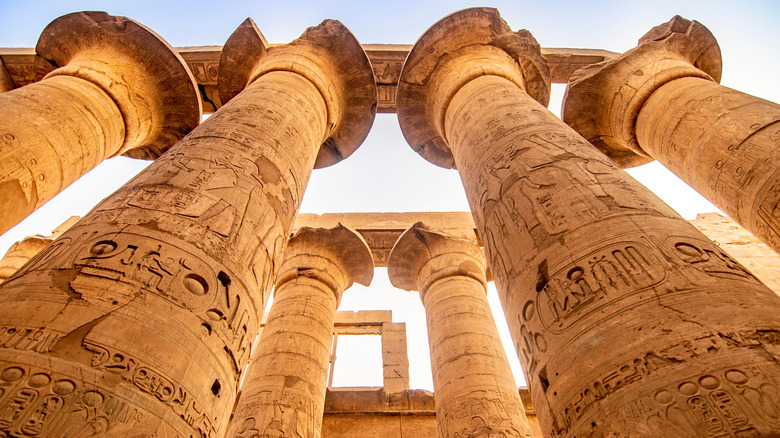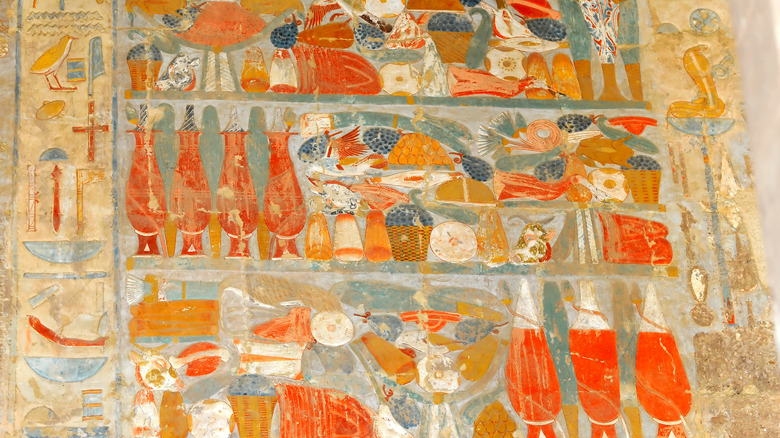Here's How The Ancient Egyptians Would Store Wine
Just as we tip our hats to the ancient Romans for their many inventions and ideas we use in modern-day society, so too do we give thanks to the ancient Egyptians for their contributions. From what might well be the world's first version of toothpaste (per Realm of History), ancient bowling (via Bowling), and of course, the countless ruins and preserved structures just waiting to be unearthed, the ancient Egyptians have left quite a mark on life today.
While there are still plenty of mysteries and discussions about the more complex matters of Egyptian life, like their politics and strategies in war, it's always a refreshing change of pace to discover the more "human" side of an ancient culture and exploring the surprising similarities between us and them. They had their own fashions, they played board games, watched sports, even had a love of jokes both tasteful and crude (via Vulture). In the sense that a good chunk of us keep a case of beer in the fridge or a bottle of wine on a cabinet, the Egyptians also loved a good drink, and how they stored it is certainly not unfamiliar to us.
The ancient Egyptians had complex wine cellars
Alcohol of various types has always been a key role in ancient Egyptian lifestyles, so much so that the Egyptians are credited for being the first to master brewing beer (per World History Encyclopedia). Wine was reserved almost exclusively for the well-to-do families, who owned luxurious vineyards (via Arab World Books). Of course, for being such a prized drink, special storage was required to prevent spoilage or contamination.
During a 2019 excavation in Tel Kom al Trogy, an area north of Cairo, archaeologists discovered a complex of wine cellars and storage galleries (via Yahoo! News UK). This was no surprise, as the area of Tel Kom al Trogy was known to produce fine wines, but for the first time historians could now see the sophistication of the ancient Egyptians, even when storing something as simple as wine. The cellars were ingeniously designed with mud bricks and limestone blocks, which helped to control the temperature — after all, a cool dark cellar would be the best place to store wine.
It was unfortunate that no jars of millennia-old prime vintage were left to be analyzed, but it was still an incredible discovery. These ancient cellars, once commonplace in those ancient by-gone days, demonstrated that even without the complex temperature-controlling technology we have today, the Egyptians valued a good drink in the same vein we enjoy a cold beer or pinot noir today.

